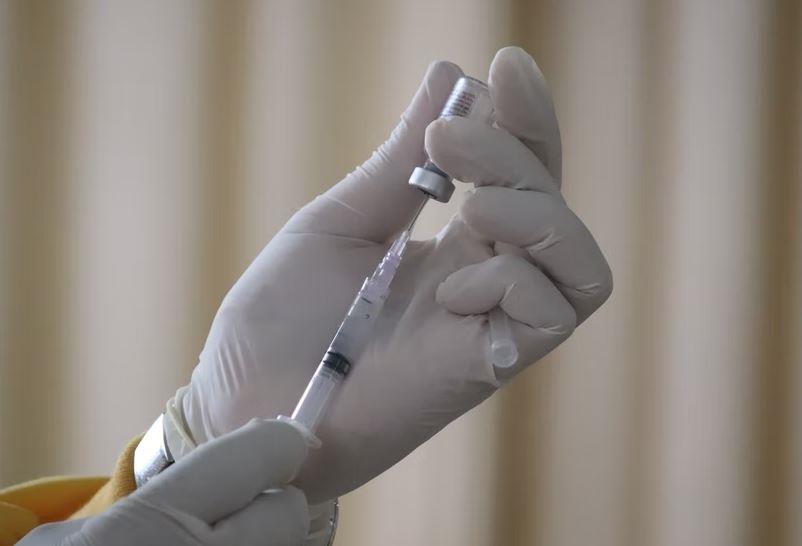
Mrna Vaccines: 5 Things To Know
-
Two pioneering scientists who created the technology behind life-saving Covid-19 vaccines have
won the Nobel Prize in medicine or physiology.
Dr. Katalin Karikó and Dr. Drew Weissman, both of the University of Pennsylvania, achieved their breakthrough by harnessing the power of genetic material known as messenger RNA, or mRNA.
Their discoveries have opened up a new chapter in medicine, paving the way for new vaccines for other infectious diseases,
including the flu, and treatments for noninfectious diseases such as cancer.
For similar articles, join our
Telegram channel
for the latest updates.
–
click here
Here are five things to know about Karikó and Weissman's game-changing research and mRNA vaccines.
What mRNA doesMessenger RNA, or mRNA, is a form of nucleic acid that tells cells what to do based on the information contained in DNA.
Unlike DNA, which acts as an instruction manual for life contained in every cell, mRNA is a temporary piece of genetic code that can create a protein or repair damage. Researchers often use a cookbook analogy. DNA is a thick recipe book, while RNA is the handwritten copy of an individual recipe that gets scrunched up and thrown away after use.
Scientists have long known about about mRNA, but it was previously thought to be too unstable to have value as a therapeutic tool.
Read more: Coffee is in danger. Starbucks is working on solutions
What the Nobel laureates discoveredKarikó and Weissman's key breakthrough was in finding a way to alter the building blocks of RNA, called nucleotides, in order to make our bodies produce an immune response.
Robin Shattock, a professor of mucosal infection and immunity at Imperial College London, said the pair's“seminal work” in understanding how to configure RNA was critical to the success of the highly effective mRNA vaccine against Covid-19.
“Their fundamental work in using modified nucleotides, the building blocks of RNA, to avoid activation of the innate immune system will be key to the successful use of future RNA vaccines and new RNA based medicines,” Shattock said.
Read more: US House Speaker Kevin McCarthy quits after historic vote to oust him
How mRNA vaccines differ from other vaccinesMany vaccines use weakened or dead versions of the viruses they're targeting - not enough to make
a person
sick, but an amount that will make the immune system respond so the body will produce antibodies if it encounters the real virus. These are called vector vaccines.
Another related technique - employed in protein subunit vaccines - uses purified pieces of a virus in order to trigger an immune response.
However, development of those types of vaccines can be lengthy, and it can be difficult to modify them quickly.
Messenger RNA-based vaccine technology doesn't rely on a modified version of a
virus to produce an immune response. It uses modified mRNA to tell the body's cells to produce proteins that train the immune system to defend the body against a particular disease.
Read more: Why your new Apple iPhone 15 is overheating
What the team overcameKarikó's fascination with the therapeutic potential of mRNA started while she was in grad school in Hungary and
never wavered despite multiple setbacks, job losses, doubt
and a transatlantic move. Her conviction that it could be used to fight disease drew skepticism, and the grants she applied for were often rejected.
Karikó, now an adjunct professor of neurosurgery at Penn's Perelman School of Medicine, met Weissman by chance in 1997. The Nobel committee said Weissman's background in immunology and Karikó's expertise in RNA biochemistry meant the two scientists complemented each other well.
“I think the important thing is that we couldn't have come to the result without both of us being involved,” said Weissman, the Roberts Family Professor of Vaccine Research at Perelman School of Medicine, in a video shared Monday by the University of Pennsylvania.
Their groundbreaking study was published in 2005, 15 years before the Covid-19 pandemic began.
Thomas Perlmann, secretary general of the Nobel Assembly for medicine, said that back then there were many roadblocks to overcome before they could use the technology in vaccine form. Those obstacles
included manufacturing mRNA in large quantities and refining a delivery method for mRNA into cells. However, he said their seminal work meant that mRNA-based Covid vaccines got off“to a flying start” when the pandemic came along.
The advent of mRNA vaccine technology has led to safe and strong protection against Covid-19. But proponents say this is just the beginning.
Early studies suggest mRNA technology shows promise as a treatment for cancers,
including melanoma
and
pancreatic cancer , and it's being studied for use in vaccines for
seasonal flu ,
respiratory syncytial virus (RSV)
and HIV .
Other avenues of ongoing mRNA research include exploring a new avenue to treat autoimmune diseases. And mRNA technology is also being checked out as a possible alternative to gene therapy for intractable conditions such as
sickle cell disease.
Subscribe to our
Telegram
channel for the latest updates
from around the world

Legal Disclaimer:
MENAFN provides the
information “as is” without warranty of any kind. We do not accept
any responsibility or liability for the accuracy, content, images,
videos, licenses, completeness, legality, or reliability of the information
contained in this article. If you have any complaints or copyright
issues related to this article, kindly contact the provider above.


















Comments
No comment